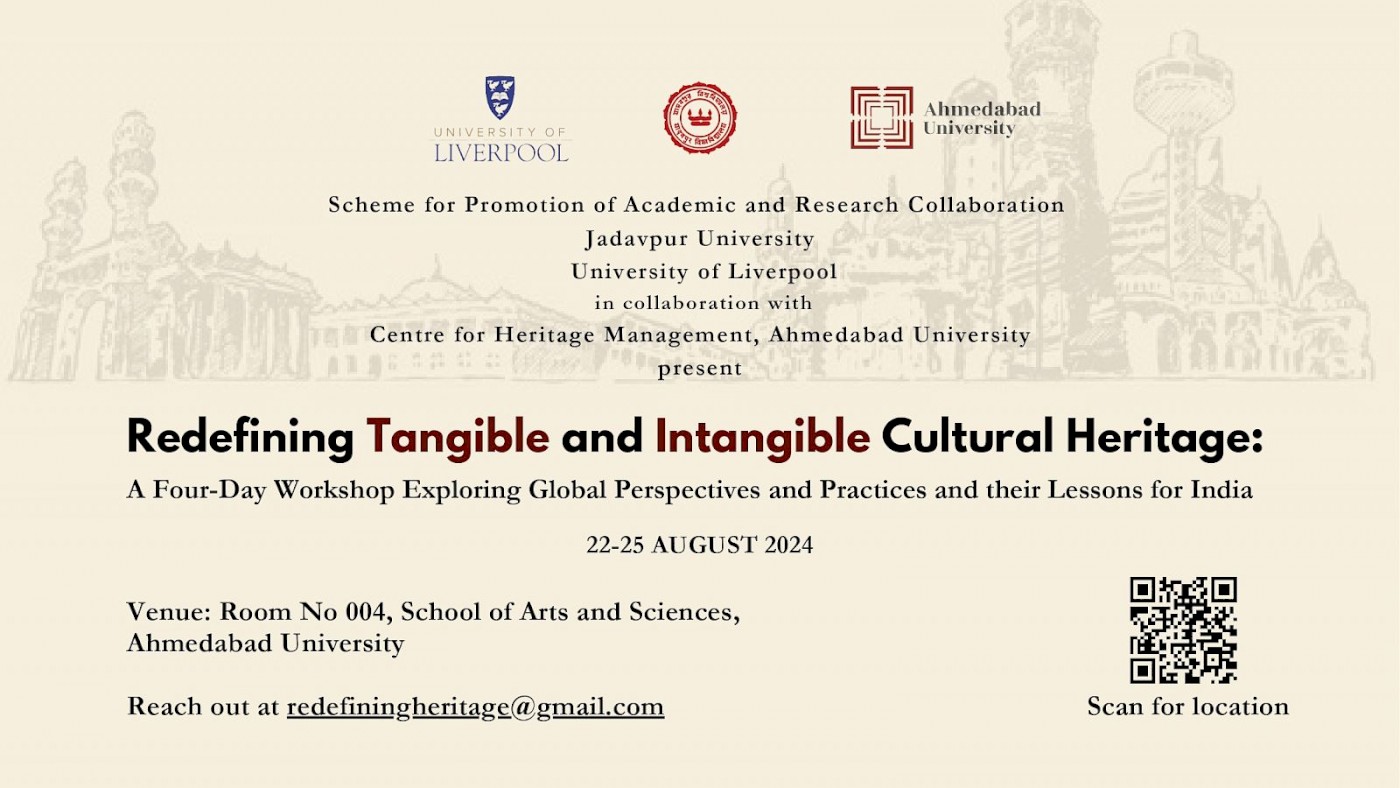Redefining Tangible and Intangible Cultural Heritage

Cultural heritage plays a vital role in shaping individual and collective identities, fostering a sense of belonging and continuity with the past. The term not only includes but is also reflective of the diversity in traditions, the richness of culture, and lived experiences that are inherited from our ancestors and passed over to our descendants. These include oral traditions, performing arts, social practices, rituals, festivals, knowledge and practices concerning nature and the universe (bio-diversity), or the knowledge and skills to produce traditional crafts. It reflects the diversity of human experiences and the richness of different cultures around the world. However, cultural heritage is not static; it evolves over time through interactions with other cultures, technological advancements, and societal changes. For instance, the aridification, rising sea levels and extreme weather events generated by climate change directly threaten world heritage, but disproportionately threaten heritage in the global south and the world’s arid margins. However, we also see a form of Resilience. Resilience in heritage is also the ability to move forward and find stability and well-being in the face of challenges and change. Resilient heritage is fundamentally a future-oriented encounter with the past.
The workshop on "Redefining Tangible and Intangible Cultural Heritage" aims to delve into the definition, significance, preservation, promotion, and management of both tangible and intangible elements of cultural heritage in India. The workshop also seeks to critically examine traditional notions of cultural heritage and explore contemporary perspectives and practices in its interpretation, and preservation. Over the course of four days, participants will engage in dynamic discussions, hands-on activities, understanding difficult heritage, best practices for sustainable heritage management and collaborative exercises aimed at reimagining cultural heritage in the context of globalisation, digitalisation, and evolving societal dynamics.
Objectives
- To enhance participants' understanding of the concepts of tangible and intangible cultural heritage.
- To challenge traditional definitions of cultural heritage and explore alternative conceptualisations.
- To explore the importance of preserving both tangible and intangible aspects of cultural heritage for future generations.
- To examine the intersectionality of cultural heritage with issues such as identity, power dynamics, and social justice.
- To discuss challenges and opportunities associated with the conservation and promotion of cultural heritage.
- To investigate the role of technology and innovation in reshaping approaches to cultural heritage preservation and dissemination.
- To foster dialogue and exchange of ideas among participants from diverse backgrounds and disciplines.
- To develop innovative strategies for redefining and revitalising cultural heritage within contemporary contexts.
- What are best practices for sustainable heritage management, preservation and reuse, especially in contexts defined by conflict, socio-economic deprivation or climate change?
- How might heritage be used to catalyse sustainable development from the bottom-up, in terms of local ownership, stewardship and benefit?



